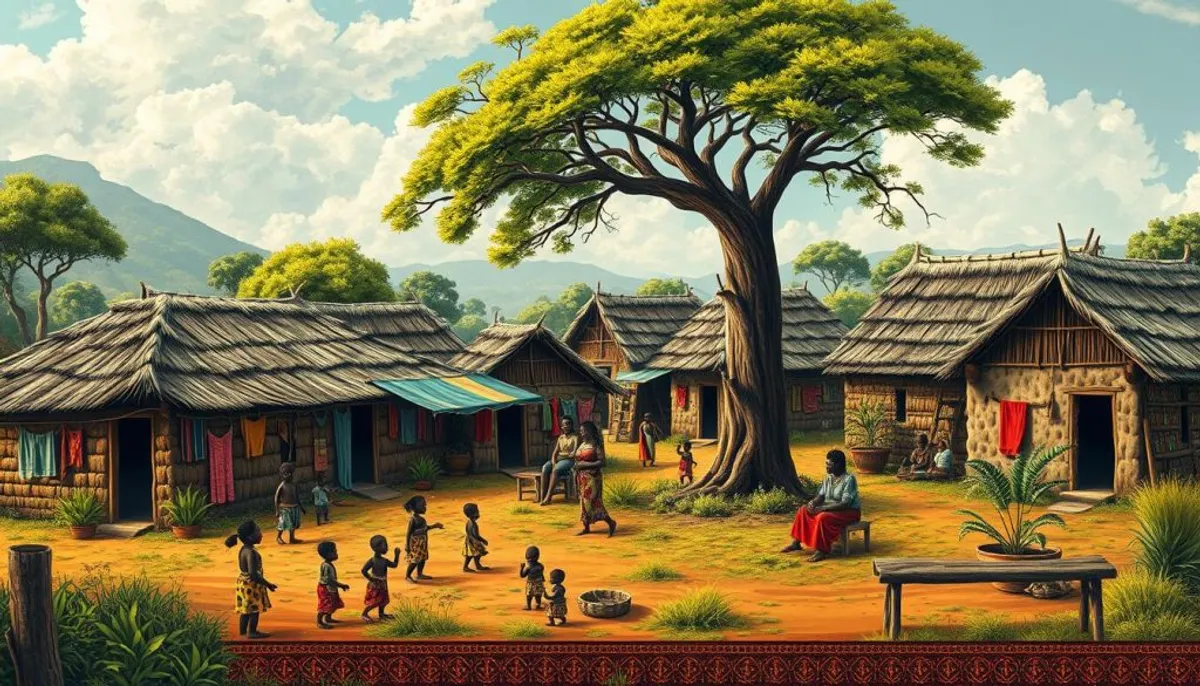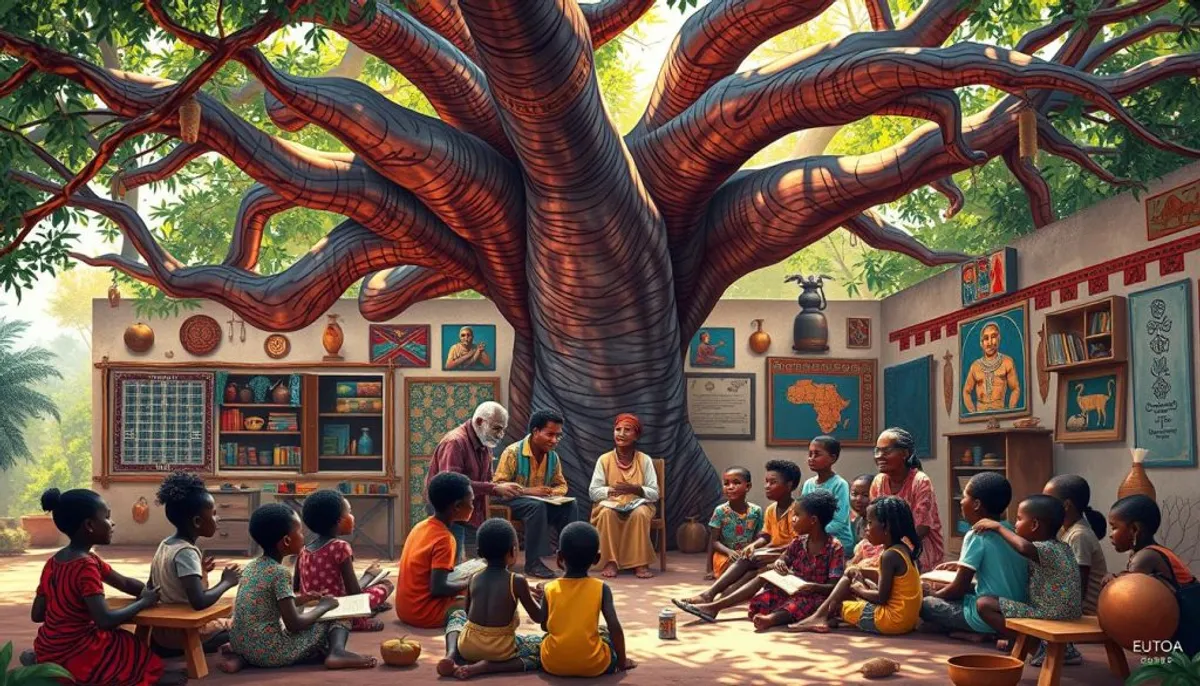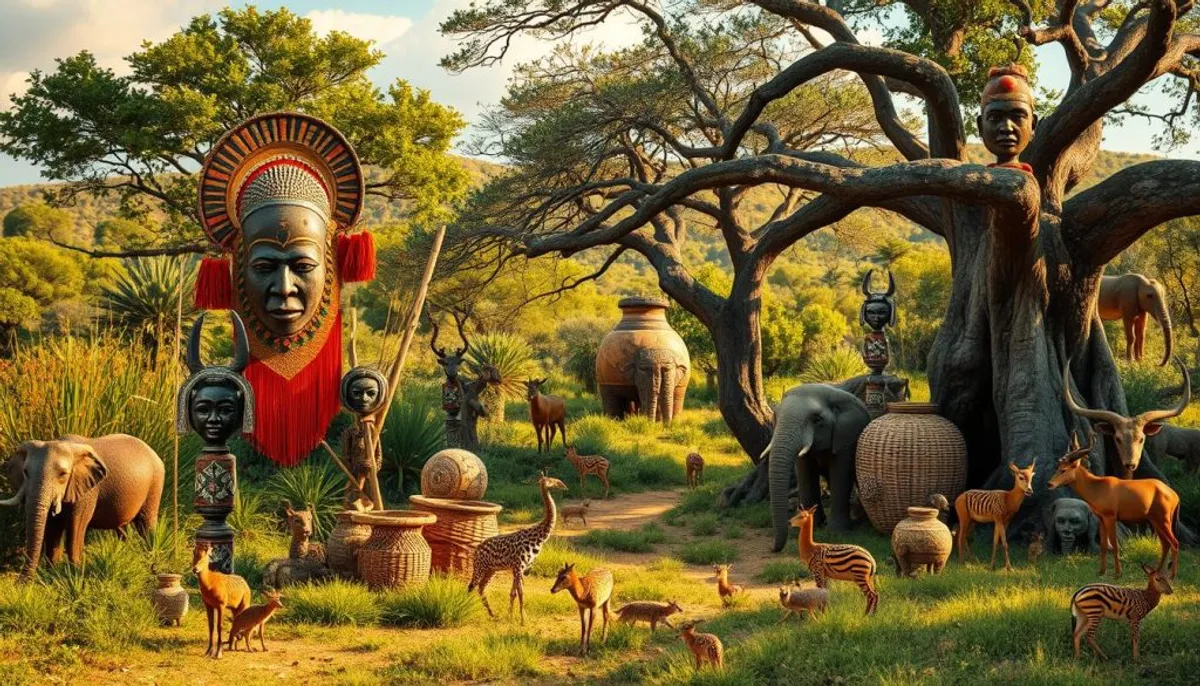The African culture is rich and profound, rooted in essential ancestral values. These traditions, passed down from generation to generation, form the foundation of African society. They emphasize respect for elders, solidarity, and spirituality as pillars.

The African Charter on Human and Peoples' Rights, adopted in Dakar, highlights the importance of these traditions. It aims to balance modernity and cultural heritage in a context of cultural decolonization.
The protection of human rights in Africa requires consideration of this diversity of customs. The challenge is to reconcile state norms with traditional practices while combating certain harmful rites. The goal is to promote positive cultural values that are crucial for the identity of the continent.
What are the values of African culture
The African culture is rooted in deeply ingrained collective values. These principles shape daily life and social interactions on the continent. They emphasize the importance of the group over the individual.
The importance of African communitarianism
Communitarianism is essential in African society. It places the community at the center of all decisions and actions. This collective approach influences people's lives, work, and interactions. It creates a sense of belonging and responsibility towards the group.
The central role of the extended family
The African family extends well beyond the nuclear parents-children structure. It encompasses grandparents, uncles, aunts, and cousins. This extended family structure offers emotional and practical support to all its members. It plays a crucial role in the education of children and the transmission of values.
Solidarity as a societal pillar
Solidarity is a fundamental value in African culture. It manifests through mutual aid and sharing within the community. This solidarity strengthens social bonds and creates a safety net for all. It is particularly visible during celebrations, mourning, and difficult times.
Beata Umubyeyi Mairesse, a Franco-Rwandan author, emphasizes the importance of these collective values for understanding African identity. They influence the conception of rights and duties in society. They give equal importance to economic, social, and cultural aspects.
The transmission of traditional African values
The transmission of values is essential to African cultural identity. Ancestral methods are now combined with modern approaches to preserve the traditions.
Ancestral transmission methods
In African culture, family and community are crucial for transmitting values. Initiation ceremonies, stories, and proverbs serve as traditional vectors. These practices allow for the transmission of fundamental values such as respect for elders and solidarity.
African education as a vector of values
African education increasingly integrates traditional values into its curricula. Reflection committees work to define a common core of values to promote at the national level. The goal is to train citizens rooted in their culture while being open to the world.

The role of modern media
African media and social networks play a key role in the transmission of values to younger generations. Content creators highlight local cultural resources. Respected figures in sports and culture engage to promote African values among the youth.
| Transmission method | Advantages | Challenges |
|---|---|---|
| School education | Systematic integration, wide reach | Adaptation to existing curricula |
| Social media | Attractiveness for youth, rapid dissemination | Content control, reliability |
| Traditional practices | Authenticity, intergenerational link | Modernization, loss of interest from youth |
The impact of globalization on African values
Globalization is revolutionizing African societies, profoundly influencing the evolution of values. In the fashion industry, for example, African designers find a global clientele through online platforms. The use of traditional fabrics, such as wax or kente, boosts the local economy.
Demographics and health in Africa are also affected by globalization. With 1 billion inhabitants, of which 40% are children under 15 years old, Africa faces considerable challenges. The average life expectancy in sub-Saharan Africa is 54.9 years. Health issues such as HIV/AIDS and malnutrition persist.
Modernity offers opportunities but also risks. African fashion is gaining visibility, but competition from textile giants threatens local artisans. Economically, Africa accounts for only 3% of global trade. The average income per capita is $2100, with nearly half of the population living below the poverty line.
Preserving cultural identity while adapting to the modern world poses a major challenge for African societies. Initiatives are emerging to promote fair trade and support local communities in this context of accelerated globalization.
The preservation of African cultural identity
Globalization raises the importance of preserving African cultural identity. Numerous initiatives are emerging to protect this rich heritage and pass it on to future generations.
National protection initiatives
African countries are adopting policies to protect their cultural heritage. These actions aim to value local traditions while modernizing them. For example, some governments integrate the teaching of African languages and history into school curricula.

The importance of African languages
African languages are essential to the cultural identity of the continent. It is crucial to preserve them to transmit ancestral values and knowledge. Increasingly, schools and universities are offering courses in African languages, aiding in their revitalization.
The role of traditional leaders
Traditional chiefs and guardians of traditions are essential to preserving cultural identity. They ensure the continuity of ancestral practices while adapting them to current realities. Their leadership inspires respect and trust, especially among the youth.
- Organization of cultural festivals
- Creation of local museums
- Promotion of traditional crafts
- Support for artists and storytellers
The preservation of African cultural identity requires the involvement of all. It is a complex but crucial challenge to maintain the diversity and richness of the African continent in a globalized world.
The challenges of intergenerational transmission
The transmission of African values faces major obstacles. The conflict between elders, guardians of traditions, and youth, attracted by modernity, creates tensions. This opposition questions the role of the elders in the transmission of knowledge and practices, while highlighting the issues of global cultural domination.
Studies in West Africa highlight the importance of women in transmission. They play a central role in passing down norms and knowledge. Elders, despite the challenges of globalization, remain key figures.
The coexistence of modernity and tradition generates tensions. Younger generations seek to adapt to the globalized world while preserving their cultural identity. This phenomenon raises questions about the preservation and reconfiguration of traditional knowledge.
To overcome these challenges, it is crucial to create spaces for intergenerational dialogue. These exchange venues would ensure an effective transmission of values while adapting them to the modern context. Thus, African culture could evolve while retaining its essence.
Conclusion
The balance between tradition and modernity is essential for the future of African values. Cultural identity, forged by centuries of history, faces the challenges of a globalized world. Preserving these ancestral values is crucial for social cohesion and African uniqueness.
Statistics show a notable growth of religious communities in Africa. Between 1978 and 2004, the number of Catholics tripled, rising from 55 to 149 million. This evolution demonstrates the vitality of African traditions in the face of external influences.
UNESCO emphasizes the importance of cultural values in global development. It highlights their role in education and technology. This international recognition underscores the necessity of preserving African heritage. African markets, places of community exchanges, illustrate the richness of traditional practices.
In conclusion, the future of Africa depends on the integration of its fundamental values into a modern context. Education, media, and national initiatives are crucial in this transmission. Thus, Africa can preserve its cultural identity while adapting to the demands of the contemporary world.
RelatedRelated articles


